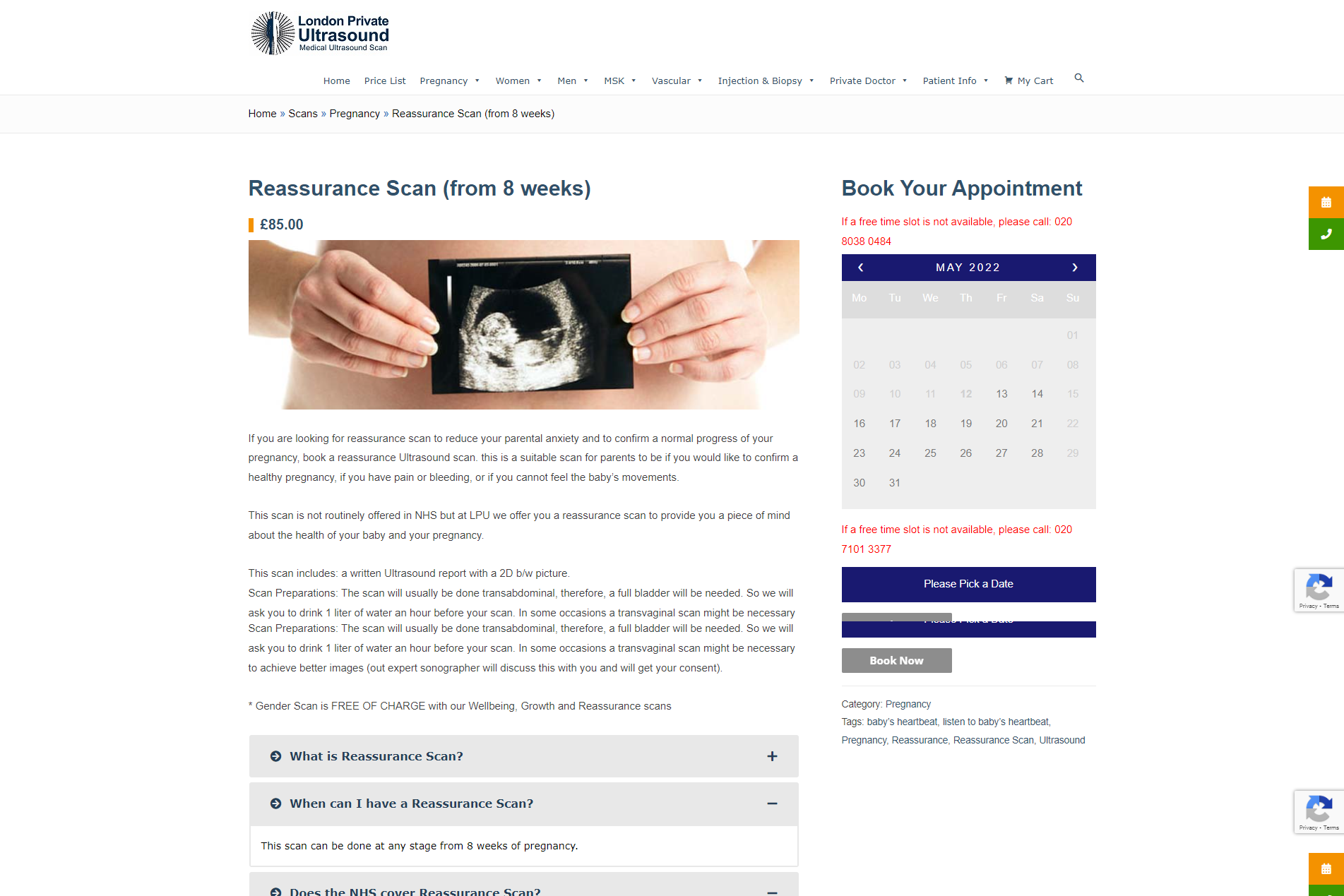Ultrasounds adverts banned for misleading parents about ability to reassure
The ads for London Private Ultrasound and the Meet Your Miracle private scan studio were both likely to mislead parents, the ASA ruled.

Your support helps us to tell the story
From reproductive rights to climate change to Big Tech, The Independent is on the ground when the story is developing. Whether it's investigating the financials of Elon Musk's pro-Trump PAC or producing our latest documentary, 'The A Word', which shines a light on the American women fighting for reproductive rights, we know how important it is to parse out the facts from the messaging.
At such a critical moment in US history, we need reporters on the ground. Your donation allows us to keep sending journalists to speak to both sides of the story.
The Independent is trusted by Americans across the entire political spectrum. And unlike many other quality news outlets, we choose not to lock Americans out of our reporting and analysis with paywalls. We believe quality journalism should be available to everyone, paid for by those who can afford it.
Your support makes all the difference.Adverts for ultrasound services have been banned for misrepresenting the extent to which scans can provide reassurance about the wellbeing of an unborn baby.
The ads for London Private Ultrasound (LPU) and the Meet Your Miracle private scan studio were both likely to mislead parents about the extent to which they could provide reassurance about a baby’s health, the Advertising Standards Authority (ASA) ruled.
Both rulings are part of a wider investigation by the ASA into private pregnancy ultrasound scans.
The website for LPU, seen last May, said the service offered various scans including a ‘reassurance scan’ costing £100 “to reduce your parental anxiety and to confirm a normal progress of your pregnancy”.
The website said this was suitable “for parents to be if you would like to confirm a healthy pregnancy, if you have pain or bleeding or if you cannot feel the baby’s movements.
“This scan is not routinely offered in NHS but at LPU we offer you a reassurance scan to provide you a piece (sic) of mind about the health of your baby and your pregnancy.”
Meet Your Miracle’s website, also seen last May, said: “Award winning pregnancy scan studios offering a range of ultrasound scans including wellbeing checks for you and your family”, and “Reassurance, dating Scan + Wellbeing check £59.00.”
The ASA investigated whether the ads misleadingly represented the extent to which the scans could assess the health and wellbeing of an embryo from seven or eight weeks.
Ultrasound London Ltd, trading as LPU, said its ad was never intended to suggest the reassurance scan provided extra medical information to the patient but rather to address any concerns the patient may have.
LPU said it immediately removed the listing for the scan from their website.
Meet Your Miracle said a simple measure of wellbeing might be whether the baby is alive, which is possible to determine from observing a heartbeat, which is visible at seven weeks.
The ASA said LPU’s ad was not sufficiently clear that there were differences or limitations in the extent of possible assessments over the course of pregnancy, particularly at an early stage from eight weeks.
It ruled: “Given the emphasis on providing ‘reassurance’ and using the scan to ‘confirm the health of the foetus, and in the absence of further information clarifying what the scan assessed and was able to perceive, particularly from the very early stage of eight weeks into a pregnancy, we concluded that the ad was likely to mislead.”
The ASA ruled Meet Your Miracle’s ad had also “not made sufficiently clear the extent to which it could provide ‘reassurance’ or determine the ‘wellbeing’ of an embryo, particularly from the early stage of pregnancy from seven weeks”.
The watchdog banned both ads from appearing again.